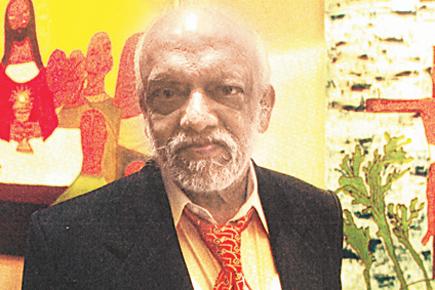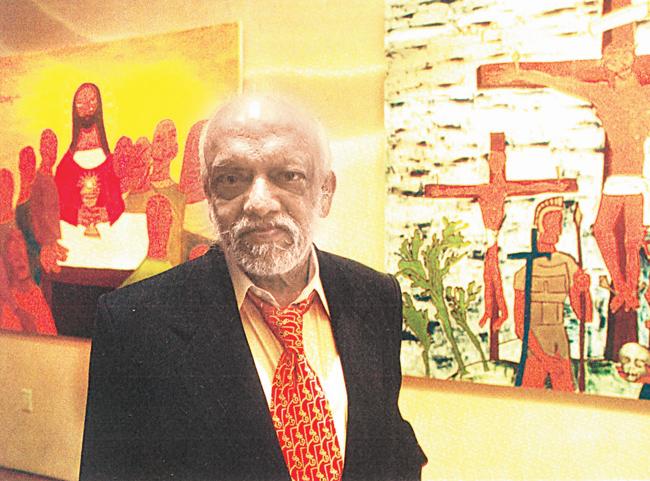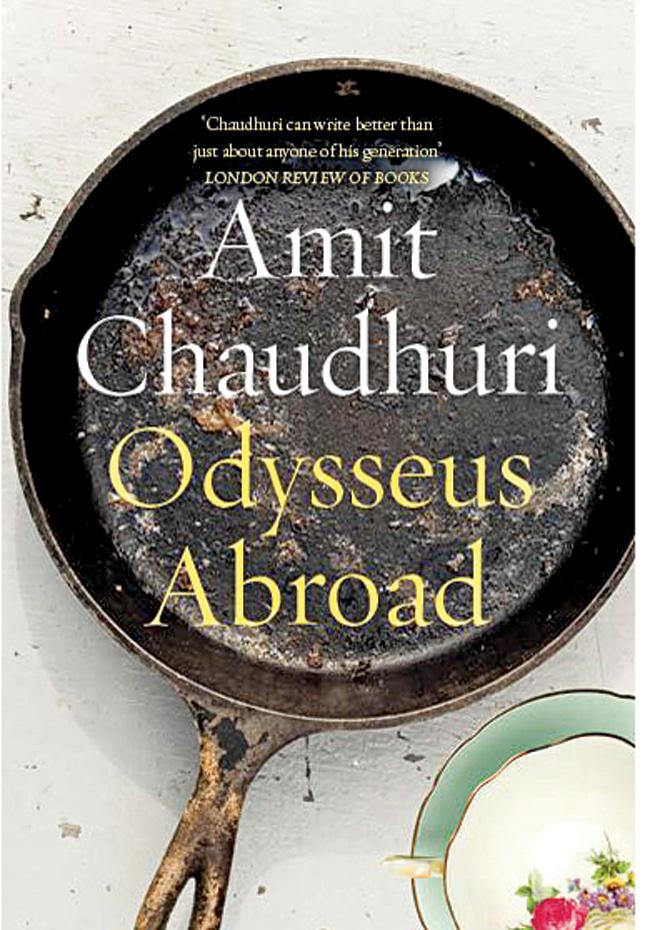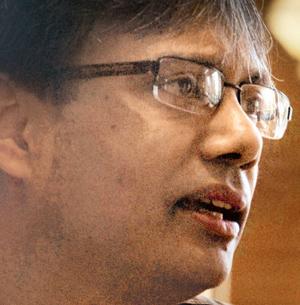Author Amit Chaudhuri chats with Kanika Sharma about his latest offering, Odysseus Abroad that somehow revolves around his love for the artist FN Souza, mentor Dan Jacobson and toilets, of course

FN Souza
Q. Odysseus Abroad is an interesting title that brings Homer’s Odyssey to mind. Why this title and analogy for
the novel?
A. The title has a kind of magic to it. ‘Abroad’ not only means to be overseas or away from home but it also means walking, or people who are at large. So it is like Odysseus at large. I have several interesting maternal uncles; maybe this person on whom I based it on, is the most interesting. Rangamama, as is referred to in the novel, went to the UK in 1957 where he lived for over 30 years, before he returned to India. In 2001, FN Souza exhibited his paintings in Calcutta. I am a big fan of Souza. I liked a charcoal sketch figure, and bought it. My uncle came home, went to the sketch and said, ‘I have heard you paid '55,000 for this thing you might as well have paid me this much for farting.’ I replied, ‘But don’t you notice, he looks like you.’ I think Souza had done a self-portrait who also looked a bit like my uncle. Both men are of medium height, balding and are temperamentally similar, both kind of ranting away — Souza ranting against Tagore and my uncle ranting for Tagore.
I began to think of my uncle for the first time as a plausible Odysseus figure then. Another reason why I retain the name Odysseus is because etymologically, it also means troublemaker and this uncle is one too.

The novel is based on artist FN Souza’s work titled Ulysses. The writer finds likeness between his uncle and the artist.
Q. How long did it take for you to write the book?
A. I bought the Souza in 2002. And embarked on the book ten years past, in 2012. My wife, and Peter Strauss, my agent had been telling me to do it, partly because he had met my uncle. At that time, Freedom Song had been published, and there was a dinner at a place in London and I asked my uncle to come along. Some of the people at the dinner were people who were very important to me as a writer. My tutor, Dan Jacobson, the novelist and on whom to a certain extent I have based Nestor Davidson, was there. Karl Miller who first published me in London Review of Books was also there. My uncle was seated next to Karl Miller — one of the greatest literary editors. My uncle is sitting next to him and talking to him about ghosts and the afterlife. And my uncle had no idea who Karl Miller is and he couldn’t have cared less even if he did. Peter was introduced to my uncle then and he was amazed by him. Thus, when I told him about the novel, he said yes, it is a great idea.
ADVERTISEMENT

Odysseus Abroad, Amit Chaudhuri, Penguin India, Rs 599. Available at leading bookstores.
Q. You call the novel, a parody. Why such an intention?
A. Because the epochs in which the epics were written were concerned with grandeur but were also concerned with the foibles of both the mortals and the gods. And the epoch in which the epics were re-written were epochs of banality or modernity. Since we are not drinking the elixir of the gods but cups of tea, there’s something very touching about the ordinary — about these cups of tea, bedsits and toilets —spaces we inhabit in lieu of those mythic places.

Amit Chaudhuri. Author
And so when I say parody, the intention is not only to mock but to re-insert the mundane into the epic to show that the epic by itself is no longer important. It’s more like the music I have been doing since the last eight years, like Eric Clapton’s Layla’s relation to raga Todi. The so-called real life (Layla) flowed into the canonical (the raga). And then nothing remains canonical. In a way, it is a world that is turned inside out.
Q. Ananda or in a way you are Telemachus in the book. Is it easy writing about yourself?
A. For me, I don't think of writing about myself hard or easy; for me, the fictionalizing process is the part of the life I lead. As I lead life and remember it, the process of imagining it begins. I don't see one as prior or one as post. I don't see book as an aversion of life, it too is part of life. It too is producing life. When A Strange and Sublime Address came out, I remember this other uncle was delighted about the book and then he almost began to study it in order to find out what he should be doing next. It was as if the book were going to give him pointers on how to behave. So in a sense, the book was producing life.
 Subscribe today by clicking the link and stay updated with the latest news!" Click here!
Subscribe today by clicking the link and stay updated with the latest news!" Click here!







